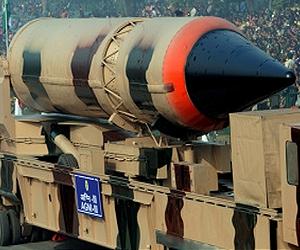 Photo courtesy AFP. |
'Five launches are scheduled for the 2010-2011 fiscal year [which began April 1], including two GSLV and three PSLV launches. The next two GSLV will be launched with Russian cryogenic engines," ISRO spokesman S. Satish said.
India earlier bought seven Russian-made 12KRB oxygen-hydrogen booster sections, five of which have already been used for launches.
India is seeking to become the sixth country to develop its own cryogenic booster sections, necessary for lifting heavy sattelites to geostationary orbit. Until recently, only the United States, Russia, France, Japan and China had the technology.
The head of the Indian Space Research Organization (ISRO), K. Radhakrishnan, said the next rocket launch with a domestically produced cryogenic engine will be held this year.
ISRO recently announced that from now on it will orbit 10 satellites every fiscal year.
The crashed GSLV, 50 meters long and weighing 416 tons, was meant to orbit G-Sat, a sophisticated 2.2-ton communications satellite.
The cost of the failed launch is estimated at $75 million, including $40 million for the rocket's construction.
Courtesy: RIA Novosti




No comments:
Post a Comment